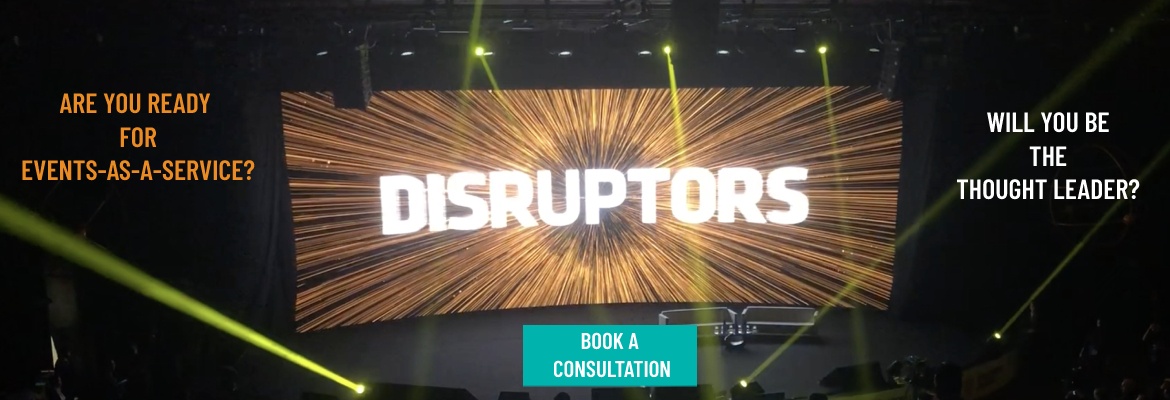This article is written for Event and Content Directors to dig deeper into the importance of community building. Previously, we have outlined it to be a vital component of the Events-as-a-Service model. We will now explain how community management will contribute to your overall success in reaching event goals.
Moving forward, a relationship-driven approach of running events will determine the impact delivered by your events. Having a community you want to delight in order to maintain a two-sided communication and loyalty is what will shape your event strategy.
Community Management as an Events Strategy
The event industry has sustained huge damage due to the pandemic, ranging from redundancies to full blown bankruptcies. However, having been taken head-on by such challenging times we have learned something of true value. How important it is to have a supportive network of not just business customers but also employees, partners and even competitors.
This has also become a pointer towards the direction we, as an industry, should take. Building an authentic community through event experience, part of an emerging EaaS model, is going to become the foundation to build new-age event strategies on.
Relationship Building
You’ve spent ages getting to know your audience and their preferences to create, market and deliver masterfully tailored successful events. But does your audience know YOU? Sure, they may know the brand name and stalk your social networks, but that’s nowhere near enough.
Think of how much time and effort you’ve spent trying to learn about them based on observations, social listening and indirect contact. Now think back on how easy it would be to obtain that sort of information from a friend. See where we are coming from?
Simply put, establishing a relationship with your audience would build a two-way conversation that would, in turn, build trust. This will lead to your audience opening up about their needs organically, allowing you to address them directly and deepen the relationship by showing you are listening.
Also, think of it this way: are you more excited about making a friend or a stranger happy?
New Approach to Goals
We don’t need to tell you that every event strategy begins with goals. The very reason behind having an event is to achieve something: to launch a new product, to attract a new audience, to increase brand awareness – the list goes on. All these are valid and important to sustain the business. But they are all revolving around you.
Shifting the mindset from prioritising your needs to those of the audience is the first step to building a community. It doesn’t mean you abandon business goals and objectives – you just put them secondary to delivering value.
Your Audience is VIP
…so treat them as such.
Put their needs and expectations at the heart of the event strategy. The key is to let them know how valued they are and the best way of doing so is an attentive, personalised approach.
Repurposing Virtual Event Platforms
Turning to virtual and hybrid types of events has accelerated the growth of virtual event platforms. Rapid development was quick to uncover that live streaming and basic engagement tools are not the only functionality they have to offer. Now it’s time to shine your creativity and put a new twist on virtual event platforms when planning an event.
They have great potential of becoming the ‘clubhouse’ for your community. This could be the ground for your online community to not only interact with you but also with one another. A place for establishing meaningful relationships not only builds trust between you and the audience but also allows you to collect heaps of data generated through conversations.
Although virtual event platforms reserve the key function of hosting and delivering events to virtual audiences, they are not limited to that. Think outside the box and look at the big picture. Ticket purchases, networking, interest-based discussions, live customer service for feedback collection: the power to shape and nurture your community grounds is with you.
Exclusivity and Loyalty
The finishing touch would be creating an extra layer of exclusivity. Although your event marketing strategy would already be based on providing tailored and valuable experience, you can always go an extra mile. And monetise that.
Subscription model may sound off-putting… But not if you call it a membership – one that offers great perks, while at it. So, on top of the value you already deliver, the members would also be rewarded for their patronage. Little things such as discounted ticket pricing, exclusive content and networking opportunities can go a long way to encourage community engagement.
Best thing is that it ties directly into community management as an events strategy approach. Establishing close relationships with the audience based on trust brings loyalty. And loyal attendees, who know the value of what you already deliver free of charge, certainly won’t mind splashing out a little when they know it’s worth it.
Everybody Wins
The best part of the community-first approach event management strategy is that everyone benefits from it. A supportive community of like-minded people give value in networking opportunities and an on-going stream of relevant information to your audience.
You, on the other hand, get NPS, awareness and loyalty. This can be your safety net if something goes wrong, too. We don’t walk away from friends when they make mistakes, do we?
Keep the Ball Rolling
Your work towards building a community does not end with creating content for one event – in fact, it never ends. That’s why you must be absolutely genuine and passionate about delivering the best you can to your audience. Same as to personal relationships, B2B relationships need to be nurtured through empathy and care.
Scrapping the foundation of a community laid down in pursuit of business goals over the audience’s needs will leave a bitter aftertaste. In fact, this puts you at the risk of losing valuable long-term relationships and loyal delegates.
Summary
Stopping the communications and forgetting about your audience once you’ve achieved your business goals is not a long-term strategy. Building a community that trusts you is.
Relationship-based event strategy is one of the driving powers behind Events-as-a-Service model because trust of consistent value is what makes both audience and partners want to stay with a single provider.
For that you need to be consistent and genuine in your efforts. And if you’re putting your all towards the success of your community and people within it – it won’t feel like an effort!
Are you ready to adapt to the EaaS mindset? We can support you.


